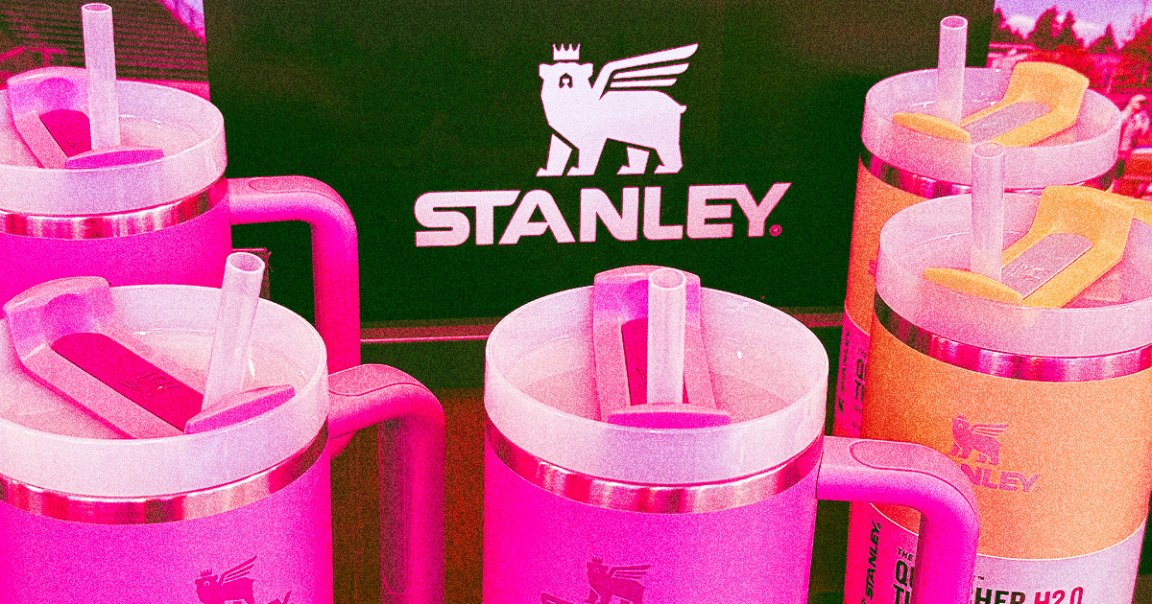
Pedal to the Lead-al
The Stanley cup lead drama continues apace — and now, legal proceedings are underway.
As HuffPost reports, there are at least three lawsuits targeting Pacific Market International (PMI), the company that’s owned Stanley since 2002, related to recent revelations about the lead contents in the mug-maker’s viral Quencher tumblers, which sell for $40 to 50 new.
In the aftermath of an incredible holiday season that saw the company’s colorful insulated travel mugs selling out and even getting hawked for hundreds on the resale market, folks on social media began pointing out that commercial lead-testing equipment seemed to indicate that Stanley cups contain the toxic element.
The company was soon after forced to admit that yes, its mugs do contain lead, but users would only be exposed if their cups are damaged. All the same, the admission milkshake ducked one of the biggest viral consumer sensations in recent memory — and now, Stanley’s being taken to court over it.
Interestingly enough, all three of the lawsuits HuffPost listed were brought by women — a byproduct, no doubt, of what one Guardian columnist calls “Stanley cup feminism” — who insist that the brand misled their demographic by failing to disclose that their products contain lead.
“PMI’s primary target market is young professional women of childbearing age,” one of the lawsuits, filed by four women in California, reads.”PMI spends enormous sums to reach this market by paying influencers to advertise Stanley cups as safe, durable products.”
Influenced
While it’s unclear how Stanley compensates its affiliates, the company’s rise in popularity is very much the product of influencers, well, influencing. Notably, it doesn’t appear that many of the social media micro-celebs who hawked the 110-year-old company’s wares have spoken out against it — though one, TikTok mommy vlogger Tori Halford, advised her followers last month to throw out their mugs in a since-deleted post.
In another suit, filed this time by a woman in Nevada, PMI was taken to task for its attempt to reassure its customers that they wouldn’t be exposed to lead if their mugs weren’t damaged, a statement that per the suit is “likely to mislead reasonable consumers, as it does not warn consumers about the potential for damage to the vacuum seal and does not disclose how much lead is present in each tumbler cup.”
To be clear, lots and lots of consumer products contain lead, which is a pretty freaky happenstance despite expert assurances that we’re mostly safe from its toxicity. But the aforementioned suits, as well as another in Washington state brought a disgruntled female customer, do bring up one huge outstanding question: beyond all the viral hype, how much tumbler damage does it take for Stanley cup users to be exposed?
More on consumer goods: Amazon Is Selling Products With AI-Generated Names Like “I Cannot Fulfill This Request It Goes Against OpenAI Use Policy”